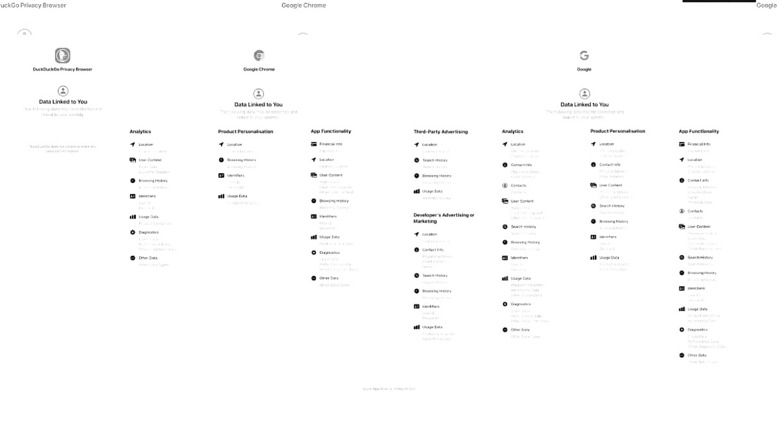
views
After weeks of the saga unfolding as Google did not roll out any updates for its popular iPhone apps and therefore did not publish the new App Privacy labels on the App Store, Google finally began to toll out updates for Gmail, Google Search and Chrome for iPhone users over the past few weeks. And along with those, the app privacy labels that reveal data that these services collect from users. Privacy focused rival search engine DuckDuckGo has fired the first shots at Google, saying Google Search and Chrome web browser apps in particular are collecting a lot of user data, as revealed by the privacy labels, and that it is no wonder Google wanted to hide it. And they may have a point.
“After months of stalling, Google finally revealed how much personal data they collect in Chrome and the Google app. No wonder they wanted to hide it. Spying on users has nothing to do with building a great web browser or search engine. We would know (our app is both in one),” says DuckDuckGo in a series of tweets. That may very well be based on the information that has been declared by Google, as part of the privacy labels that are a mandatory add-on for the updated apps and their listings on the Apple App Store—Android users, you mustn’t sit in the corner and grin, because this isn’t an Apple iPhone unique issue and you can very well expect a similar data collection happening on your phones too. The Google Chrome web browser app, for instance, collects location data, browsing history, User ID and device ID identifiers, crash data, performance data, user content (this lists audio data and customer support), product interaction usage data, payment info and a vaguely packaged “other data types” that is listed for analytics as well as app functionality.
After months of stalling, Google finally revealed how much personal data they collect in Chrome and the Google app. No wonder they wanted to hide it.⁰Spying on users has nothing to do with building a great web browser or search engine. We would know (our app is both in one). pic.twitter.com/lJBbLTjMuu— DuckDuckGo (@DuckDuckGo) March 15, 2021
At the same time, the Google Search app collects location data with precise location, search history, browsing history, usage data that lists advertising data, contacts, physical address and email address, photos and videos as well as other user content, product interaction and advertising data, as well as payment info that you’ve stored under financial info for autofill, to name a few. The privacy labels for the DuckDuckGo app for the iPhone simply says, “DuckDuckGo does not collect or share any personal information”. It took a while for Google to actually update a bunch of the popular apps for the Apple iPhone, because from December last year, Apple made it mandatory for app developers to fill and display the privacy labels for each app even when an update is rolled out, to list what user data is collected by the app. Google finally released updates for apps such as Google Search, Gmail and Google Chrome as late as the second half of February, after much criticism. DuckDuckGo is not mincing any words when it says, “no wonder they wanted to hide it.”
DuckDuckGo is a privacy focused web browser and search engine, all rolled in one, and is also available for the Apple iPhone and iPad—this can also be set as the default search engine on these devices. The search engine has always claimed the focus on privacy, that they don’t collect any user data and neither is any data shared.
Read all the Latest News, Breaking News and Coronavirus News here


















Comments
0 comment